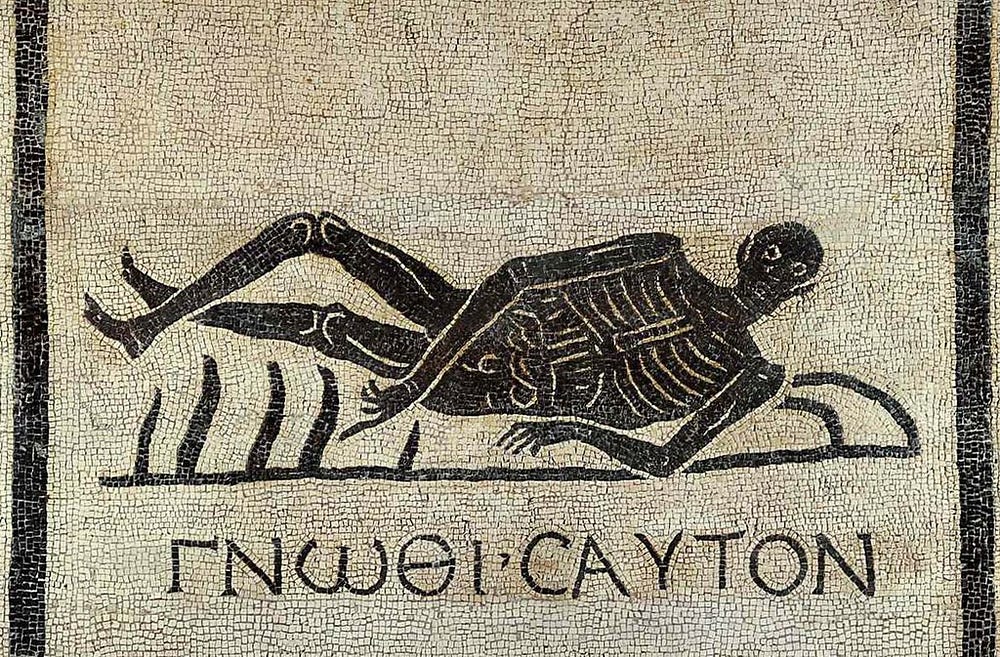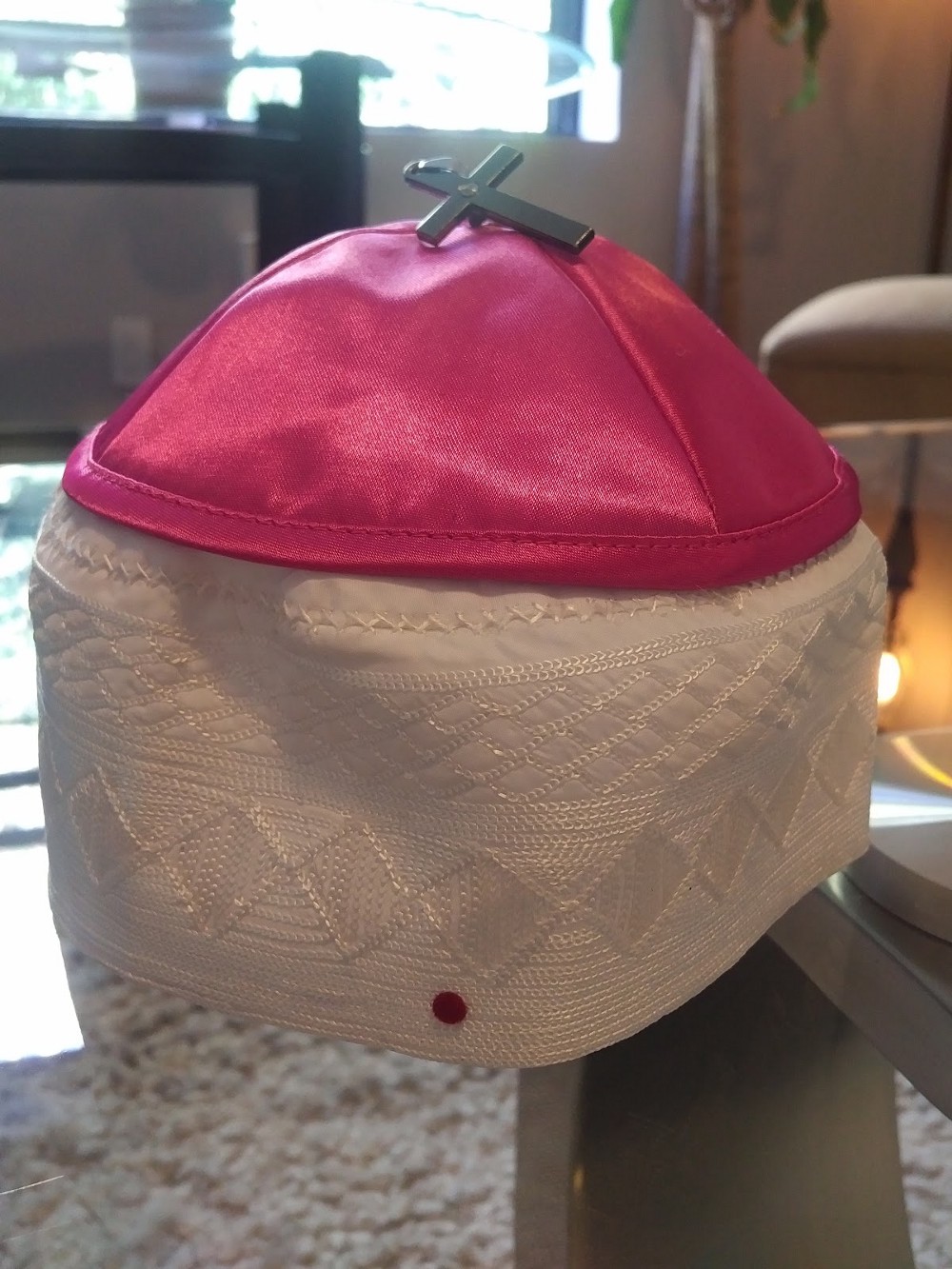I was Christened. Not by choice. I’m not an atheist, just agnostic. I believe we are all tiny fragments of Universal Consciousness and Universal Conscious Creator (UC and UCC. You see, see?) Ego is the opposite. I like the Edging God Out interpretation, or ESO: Edging Soul Out.
Each religion is a school of people, rituals, robes and writings that purport to lead to a connection with God, soul or spirit. But Catholic, Hindu, Jew, Muslim, are group identities and labels. By definition they are abstract. Enter ego: a paranoid creation of imagination, terrified of not existing and craving a group identity (and abstract labels and material possessions) to help prove its existence.
But the only group an ego can belong to is a group ego.
I have spent the last six years studying happiness around the world. I discovered happiness means connecting well with existence (and others) and that there are five muscles that help you do it. These five muscles exercise the soul, whereas ego drives disconnection and unhappiness. I called my book The Happiness Animal because the word ‘Animal’ derives from the latin ‘Anima,’ meaning spirit. Here’s my rundown of how four religions shape up when it comes to exercising that spirit.
Muscle 1: Honesty
I ran a survey of 700 people globally, polling the best definition of happiness. Trust and Confidence won the majority vote.
‘Distance yourself from words of falsehood,’ is the Torah’s abstract and non-specific way of saying ‘don’t lie and avoid people that do’. In practice there’s a prevalent Hebrew phrase, ‘shitat matzliach,’ meaning: when it comes to succeeding, anything goes.
For Hindus the Taittririya Upanishad deems that our conduct should “be marked by truthfulness in word, deed, and thought.” Marking thoughts with truthfulness is about as possible as hand-swatting all the mosquitoes in India. The irony is that “shoulding” — — a highly prevalent term among all religions — — -is an example of moralizing: trying to model your existence around rules that your ego identifies with. Ego is just a creation of our imagination. And if it’s not real, it’s not honest. Moralizing is more-a-lyin, demoralizing.
Similarly, the goal of the below Islamic Dua is the cultivation of honesty but ‘treachery’ and ‘what lays hidden in the breasts’ are both abstract creations of the author’s imagination. If it’s not specific, it’s not honest.

There’s one religion, notorious for shoulds and guilt, which still gets about as close as a religion gets to practicing radical honesty. Catholic confession could make people happier because it forces an acceptance and connection with one’s actions. Unfortunately the benefits of the confession can be lost following the response from the priest. There is no mental health benefit to being chastised with 2000 hail Marys for confessing that you have ‘impure’ thoughts about a coworker. Hailing Mary often increases a sense of demoralizing and disconnecting guilt, and that lovely emotion we call shame. If only Brene Brown were the High Priestess.
Muscle 2: Kindness

Image: Facebook
The kindness of empathy is shortcut to a sense of belonging and connection, well documented by author and speaker Brene Brown. Mother Theresa embodied kindness, but Catholicism earned notoriety for intense cruelty towards those who didn’t follow the moralizing rules. Dramatized by the movie Philomena, thousands of Irish women were sent to convents in the 1950s and 60s, and their children forcibly given up for adoption after the Church declared single mothers as moral degenerates who must not be allowed to keep their children. More recently, in 2015 CBS reported that a Catholic Church in San Francisco prevented homeless people from sleeping on its steps at night by spraying them with cold water.
The word Islam, which means “surrender,” is related to the Arabic salam, or peace. Did you know that Muslims in Bihar donated land to help build the world’s largest Hindu temple?
Hinduism says that it is ‘the sum of duty: do not do to others what would cause pain if done to you’. — (Mahabharata 5:1517). Yet it is also not hard to find evidence of cruelty in the Hindu scriptures: If a Brahmin (highest caste) abuses a Shudra (lowest caste), he is to be fined mildly, but if a Shudra abuses a Brahmin, he is to be killed.
But back to reality and outside the scriptures in a small village in Karnataka, Hindus came forward to help their Muslim brothers rebuild a mosque that was on the brink of collapse in 2010. If you look deeper, you will find evidence of extreme polar opposites in behavior within all four religions.
If religious groups were people, they would be schizophrenic.
For Jews, the word mitzvah (literally, “commandment”) means any good deed. In practice we see evidence of biased ‘in group’ kindness helping Jews more than out-group ‘Goys’. Exclusivity extends to dating. In this Q&A on a popular Jewish site, one non-Jewish girl expressed her struggle to find acceptance from the parents of her Jewish fiance, parents who told her ‘for a Jew to marry a non-Jew and have children is worse than the Holocaust’.
I’ve shared apartments with three Jewish women in two different continents. All said they’d only date fellow Jews. Whether or not they’d reject the advances of Brad Pitt or Ryan Gosling is uncertain, and there are of course, exceptions to this in-group only attitude: I saw someone creating the below on the NYC subway a few days after ‘we the people’ elected Trump. Perhaps a mutual purpose — — or threat — — really is key to human solidarity.

Muscle 3: Curiosity (and tolerance)
The wonder muscle resonates with Hinduism.
It holds that each of us is God, and that all paths lead to our realizing and embracing this truth, and so are all valid and precious.
All 330 million+ Goddesses and Gods of Hinduism are viewed as representing the many facets of ultimate reality. I like that idea a lot.
Ask any Catholic about whether free spirit is encouraged by the Catholic church and a ‘are you kidding me’ is likely to follow. In Judaism, however, the Holy Spirit “Divine Inspiration,” refers to inspiration received by those who perceive and channel the inspiration through action, writing or performance. Perhaps no coincidence this religion has fostered an abundance of curious creatives from the Cohen brothers to Bob Dylan, Leonard Cohen, Woody Allen, Jerry Seinfeld and artist Mark Chagall. In Catholicism, Hinduism and Islam: Not so much. Picasso may have been born a Catholic, but he declared himself an atheist.
Religion on evil…
CNN anchor Don Lemon recently commented, ‘I don’t think it’s evil,’ in response to the kids who kidnapped a disabled man. Evil is an abstract label that avoids the specifics. The majority of crimes can be attributed to a root cause of a specific mental illness. When Portugal and the UK stopped treating drug addicts as ‘evil criminals’ with a war on drugs and started treating them with compassionate mental health and legalized treatment programs, the rates of addiction, related crimes and mortality dropped.
Religion has an answer for evil but it does not have an answer for mental illness.
I defended Don Lemon’s ‘not evil’ and then watched the outrage comments role in on Facebook. When I looked at the profiles, the person most outraged was a Catholic living in Ohio. The epiphany I had at that moment was that the real fear behind the anger was fear of the idea that there could be alternative explanation other than evil. Evil is what people go to war over. Many are afraid of a world where evil doesn’t exist, because evil helps justify religion’s existence. Yes we know what those kids did was harmful and needs to be punished with the goal of correcting the behavior but calling them ‘evil’ won’t fix anything. A healthy level of curiosity into criminal actions however, ensures we start to address the causes. Fear no evil, because there is no evil. There are just a hell of a lot of mentally unwell folks.
Muscle 4: Awareness
If awareness is noticing the difference between thoughts of imagination vs what you can notice with your senses, then the most aware person would be a meditation guru. This is where religions fail epically. This is important because when I studied the happiness of individuals around the world, awareness was a more critical foundation than kindness for reaching the highest levels of wellbeing. It doesn’t take long to realize when reading through forums such as this, that independent cultivation of awareness is not advocated by the Catholic church. Perhaps the Dalai Lama is less likely to be unhappy than Mother Teresa would have been. New publications have suggested the recently canonized Saint ‘lived in a state of deep and abiding spiritual pain’. Could religion have been an obstacle to her awareness and therefore her happiness? Perhaps, but if Mother Teresa had been unkind, she probably would have been suicidal.
Muscle 5: Courage and Creativity
Fear is the opposite of happiness. You overcome fear through acceptance, facing and experiencing it until you notice the symptoms diminishing with your senses. Courage is consciously following one’s intuition, while accepting one’s fears. The Trial of Galileo was a confrontation between the creativity of science and the traditions of religion. In 1633 he published a book that asserted that the sun was at the center of the solar system and not the earth. The Catholic Church brought Galileo to trial. At age 69, he argued ‘the Bible tells us how to go to heaven, not how the heavens go.’ Yet Galileo insisted the source of his courage was his unwavering faith in God. Gandhi too drew his moral and social courage from his Hindu faith.
Catholicculture.org defines courage as: Virtue of bravery in facing difficulties, especially in overcoming the fear of consequences in doing good. As moral courage, it enables a person to pursue a course deemed right. Some deem that a suicide bomb mission is right but ask other people to blow themselves up. Is following what someone else deems right, courage or blind belief? Religion offers a roof of belief to protect from the rain of fear but no one spends all their time living in a church. True courage comes from being honest with oneself rather than having what is ‘right’ prescribed by a group or by individuals who speak for that group. ‘Know thyself’ or to quote Ralph Waldo Emerson, ‘Trust thyself’.

The ancient Greek motto ‘know thyself’ inscribed on a mosaic in the Gregorio Magno al Celio in Rome
Conclusion
Religion fails when it comes to helping the individual exercise their awareness, curiosity and creativity muscles — — with the exceptions of Judaism and Hinduism. Nor do these four religions do much for the honesty muscle (with the exception of Catholic confession).
Using senses — — feeling — — is literally the most sensible (meaning of the senses) way to feel alive and connect to our soul, spirit and others. When religions can do that they will help us live happier lives.
The strength of all religions is in the fostering of communities and the sense of belonging in those groups (even if there is an element of group ego). But the strongest kindness of all is one that doesn’t originate from a following a group code of ethics. The danger of religion is not hard to see in the acts of cruelty perpetrated by individuals associating with the group egos of their religions in the moralizing and ‘deeming’ of what is right and wrong. What is healthier is exercising instincts to empower you to follow your gut more often. Both restraint and moralizing lead to madness from the denial of what you want. When your madness finds resistance against your denial, it often results in rebellion with a splurge of excess, perversions, cover-ups, and demoralizing dishonesty. Let’s hope we don’t need another Spotlight.


